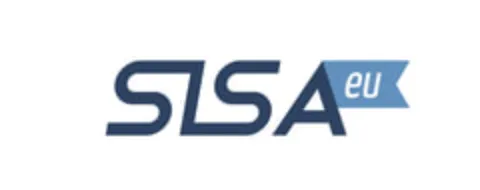SLSAeu 2025/SAACY Conference - The Lifespan: Perspectives on Ageing and the Life Course from the Medical Humanities, the Health Sciences and Age Studies
The Lifespan: Perspectives on Ageing and the Life Course from the Medical Humanities, the Health Sciences and Age Studies, the 2025 Conference of SLSAeu European Society for Literature, Science and the Arts, hosted by The Sciences of Ageing and the Culture of Youth takes place on 4-6 June 2025. The event will be led by Dr Aura Heydenreich (President SLSAeu) and Dr Martina Zimmermann (SAACY Programme Lead).
Conference registration is now open. Please follow this link to register for The Lifespan.
The Provisional Programme is live, and you can download it here.
Ageing is too often seen as an inevitable period of decline at the end of life. The UKRI-funded research programme The Sciences of Ageing and the Culture of Youth (SAACY), based at the Centre for the Humanities and Health at King’s College London, a research hub invested in the human dimensions of healthcare, looks at how we can overcome this cultural pessimism by understanding ageing as a lifelong process rather than something that happens at the end of our lives. Older age poses challenges and opportunities just like every other phase in life.
This conference is interested in the synergistic capacities of ageing research across the humanities, social and medical/life sciences invested in ageing as a lifelong process. SLSAeu and SAACY join for this conference to share research at the many intersections of science, literature and the arts.
Ageing does come with material changes of the body, varying levels of energy and the possibility of ill health. But the decline narrative that aligns ageing with disease and evokes anxieties about vulnerability and dependence is only partly informed by the biological reality of bodily change across the lifespan. It is also directed by cultural and wider societal perceptions of what ageing means.
Biological ageing captures the impact of lifelong inequalities connected to the categories of difference that age studies are interested in; similarly, as a product and reflection of cultural values and beliefs, literature is essential for capturing the stories about ageing we live by. These stories, in turn, influence how we age, biologically, psychologically, socially; and they inform how we approach care, do research, and plan our lives on a changing planet.
Achieving attitudinal change to ageing would have far-reaching socio-economic and political implications – for how we retire, treat and care for older people, fund research and care, and understand intergenerational relations. It would break down barriers to opportunity across the age spectrum and contribute to healthier ageing for all. ‘The Lifespan’ wants to generate conversations between predictive and quantitative sciences and research approaches that describe and contextualise.
This three-day conference will be held at King’s College London. We are keen to foster conversations across disciplines within panels and invite contributions on lifespan/lifecourse approaches to ageing from disciplines such as Anthropology, Cultural Studies, Languages and Literatures, Narrative Medicine, Dementia Studies, Geriatrics, Gerontology, Neuroscience, Psychiatry, Public Health, Disability Studies, Epidemiology, Evolutionary Science and Medicine, Gender Studies, Philosophy, Critical Posthumanism, Postgenomic Sciences and Health Economics. We have a strong preference for papers to be presented in person, while hoping to be able to provide limited hybrid options.
Confirmed plenary speakers and round table discussants include:
Sally Chivers, Trent University, Canada
Ulrike Draesner, Leipzig University, Germany
Des O’Neill, Trinity College Dublin, Republic of Ireland
Susan Pickard, University of Liverpool, UK
Oliver Robinson, Imperial College London, UK
Kavita Sivaramakrishnan, Columbia University, USA
Aagje Swinnen, Maastricht University, Netherlands
Registration and bursaries covering travel and accommodation
Details for the registration will be provided in due course, with the Conference registration set at £150.
SLSAeu and SAACY are committed to supporting MA/MSc and PhD students and other Early Career Researchers (ECRs) to present their work. We expect to be able to provide at least 20 bursaries to contribute to travel and accommodation for ECRs. If you wish to be considered for a bursary your abstract must be submitted by Monday 20th January 2025. Expenses for travel and accommodation can only be reimbursed if we have received receipts by Monday 16th June 2025.
Abstracts
Please submit your 250-word abstract alongside a 50-word biography by 20th January 2025. Formats include paper presentations (20 minutes) and discipline-crossing panels (including participants from three disciplines, one of whom the moderator). We also encourage sector-crossing panels that include artists and writers, and welcome art events. Proposals for discipline-crossing panels spanning sciences/medicine, social sciences, the humanities, and the arts are especially welcome.
Please use this online form, if you wish to submit an individual abstract. As the moderator of a proposed panel, please use this online form for submitting the panel proposal and abstracts for and on behalf of you panel members. The forms ask for contact details and offer the option to express interest in a travel/accommodation bursary. If you’d like to be considered for one of these, please also complete the box asking for a short (50-word) statement as to how you identify as an ECR.
Key Dates
Abstracts due 20th January 2025
Decision on talks and bursaries mid-February 2025
Registration opens mid-February 2025
Deadline registration to confirm talk 17th March 2025
Publication of conference programme 1 April 2025
Registration closes 30 April 2025
Conference 4th–6th June 2025
For informal queries: SLSAeu-SAACY-Conference@kcl.ac.uk

At this event
Search for another event


